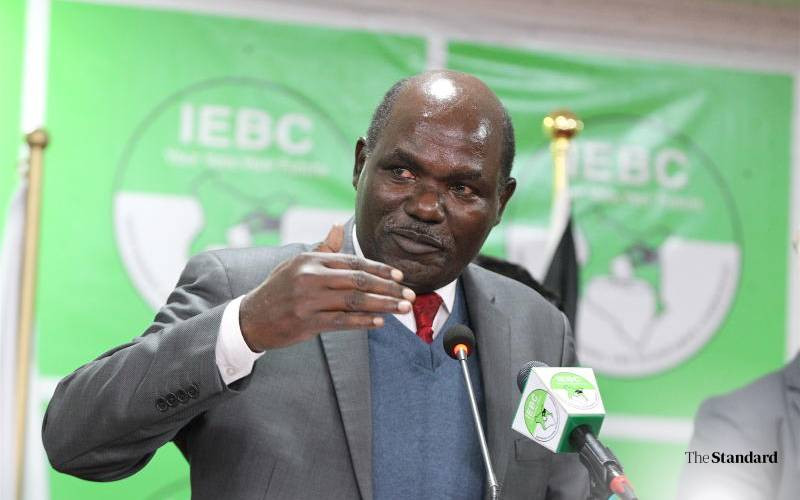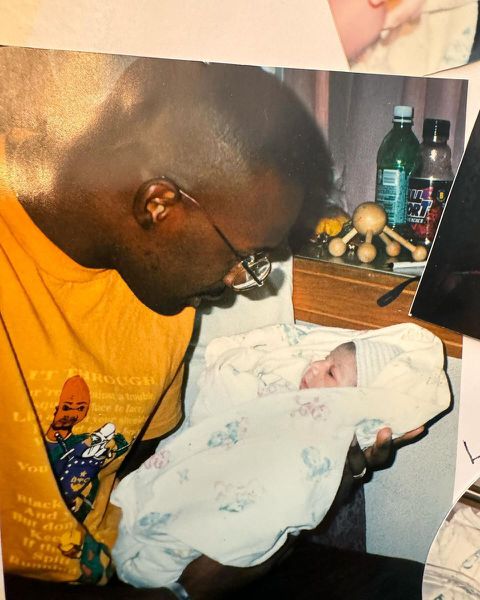Former polls commission chief Wafula Chebukati can be likened to actress Sandra Bullock, who won the Academy Award for Best Actress in 2010 one day after receiving the Golden Raspberry for Worst Actress.
Election experts, lawyers and observers say Chebukati’s stint at the crucial commission came with a mishmash of feats. He didn’t entirely fail but also didn’t excel at building public confidence in the agency.
Described by President William Ruto as a ‘national hero’ after the 2022 General Election, Wafula Chebukati stood firm against external pressure—especially when four IEBC commissioners, the ‘Cherera Four,’ disowned the results. However, he takes many secrets to his grave.
Credited with introducing real-time results streaming and public access to Form 34A on the commission’s portal, Chebukati died on Thursday before giving Kenyans the full story of what he termed threats on his life slightly before and during the 2022 elections when infighting took a heavy toll on his commission.
Accusations of bias, especially by the Azimio One Kenya Coalition badly dented his neutrality. But perhaps he should have lived longer to give details of pro-government officials who reportedly carried sacks of cash to Bomas of Kenya on August 14, 2022, the night before Ruto was declared president-elect, with the intention to ‘bribe’ the ‘tensed’ chairman to tilt the election outcome.
Venezuelans’ arrest
Chebukati, the soft-spoken man from Kitale, declared Ruto the winner of the 2022 vote with 50.49 per cent of the vote, against Raila Odinga’s 48.5 per cent in an event marked by televised chaotic scenes that chagrined Ruto’s family, including his mother Sarah and wife Rachel, who were at Bomas. Members of the clergy and choir teams present could not quell the tensions.
Meanwhile, the former chairman equally takes to the grave critical information he may have been privy to regarding the murder of election official Chris Msando before the 2017 elections, and possibly who could have stood on the path of electoral reforms. Just who wanted Musando dead?
Another significant secret the man will never tell is details of three Venezuelans who were arrested on July 21, 2022 at Jomo Kenyatta International Airport in Nairobi in possession of election materials. The electoral commission boss claimed the three foreigners were key in the management of August 9, 2022 poll’s technological network. Not much was revealed about the trio. Who were they and who had sent them to Kenya, and to do what exactly?
Overall, the former chairman has been criticized for failing to address his own blunders and those of his officers in the period leading to the annulled 2017 General Election, as well as in 2022.
“At no time did he take personal responsibility for failures during any of the elections. Even if technology failed in 2017 and had glitches in 2022, he played safe and never did much to repair the battered image of his organization and the bleak future it faced. In 2017 after the Supreme Court’s harsh verdict, Chebukati seemed unbothered,” governance expert Paul Okinyi says.
On October 17, 2017, Chebulati announced to the chagrin of Kenyan that he could not guarantee the credibility of the October 26, 2017 elections. In a carefully worded speech that had all the ingredients of a man in despair, he declared his determination ‘to make this commission work.’
A day after the sham repeat presidential elections of October 30, 2017, and before a tensed nation, the IEBC chairman was there declaring the very results he had expressed doubts about right from the point things spiraled out of control. “He was merely swimming in confusion,” says Okinyi. But come September 2018, Chebukati, who succeeded Isaack Hassan in January 2017, sprang up to announce at a post-election evaluation forum in Nairobi that he was happy with the conduct of the 2017 elections. He sang his own praise that out of the 14,523 candidates who contested, only 25 of the 300 petitions filed in the courts succeeded.
Soon after, a tiff between him and former CEO Ezra Chiloba exploded, and the comedy of the resignation and return to office of three commissioners ensued. In the ensuing confusion, top IEBC staff began carting away crucial files from the commission’s finance and procurement departments. After Chiloba’s dramatic exit, the polls agency operated aimlessly for eight months without a substantive CEO.
Stay informed. Subscribe to our newsletter
Supreme verdict
That time, commissioners Consolata Nkatha, Roselyn Akombe, Paul Kurgat and Margaret Wanjala had quit. Three years after the sham 2017 polls, Chebukati and his remaining two commissioners – Boya molu and Abdi Guliye – uploaded faulty elections data on the commission website only to recall it after public uproar. He had no qualms about this tragedy of errors. It was the hallmark of confusion, some say.
“The chairman failed to understand Kenyans’ disappointment at that time. No amount of acting and make-believe could have restored IEBC’s image. The commission should have been disbanded. Better still, the chairman should have called it a day,” says lawyer Odete Oyieko.
Perhaps the Supreme Court’s verdict on the 2022 polls that came with ‘wild goose chases’ and ‘hot airs’ handed Chebutaki the much-needed positive parting shot as his term neared the ultimate end. When the court affirmed Ruto’s win, Chebukati said: “The commission wishes to thank immensely its legal team in not only defending it but also enduring that the sovereign will of the people of Kenya is protected.”
Some observers say that in every election cycle, the IEBC has proved that in Africa, doing the right thing isn’t always the right thing to many people. Even in the face of serious dereliction of duty, officials prefer to gleefully remain in office and draw salaries, and none of them never takes responsibility.
Another critical lessons in the eyes of many is that leading Kenya’s electoral commission is a thankless job. Samuel Kivuitu of EAC comes to mind. It doesn’t matter how well you do it. Either way, the party that loses the election will blame you while the winner will heap praises on you. That’s just how it works.








